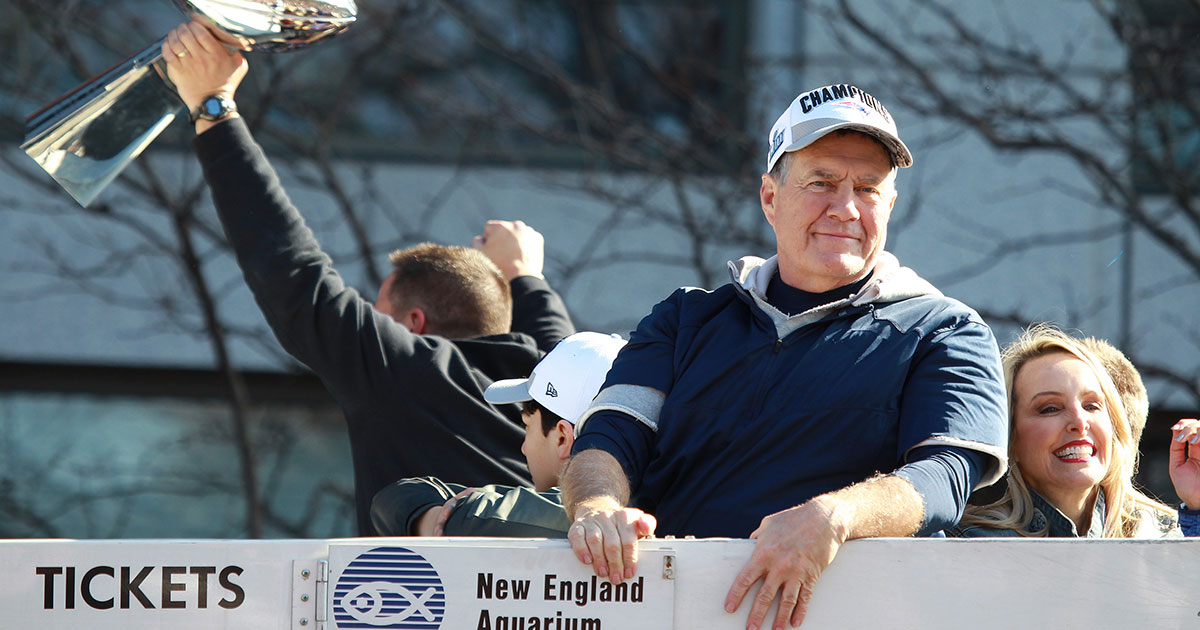What NFL Firings Can Teach About Leadership and Management

As the NFL football season winds down, a season of a different sort begins, one of hot seats and pink slips.
Inevitably every year, a wave of football coaches loses their jobs. The NFL firings are so expected that the day after the regular season ends has become known as Black Monday. So far this season, eight head coaches have been removed from their positions, including two elder statesmen of the pigskin: Bill Belichick of the New England Patriots and Pete Carroll of the Seattle Seahawks.
Firings in any business are complicated, and the NFL, with its high-profile coaches, is no different. “Firings are not always handled well,” says Joseph Weintraub, a Babson professor of management. “It’s a difficult process. There is no guidebook.”
Weintraub has served as an organizational psychologist for a Major League Baseball team (he declined to name which one) and has witnessed firsthand what the process of dismissing a leader looks like in a major professional sport. Many factors go into it, but the bottom line, not surprisingly, typically comes down to wins and losses. “Performance counts,” he says. “It’s what people look at.”
In this season of NFL firings, Weintraub reflects on the right and wrong ways to dismiss coaches and what the process teaches about business leadership and management.
The Limits of Loyalty
To fire a coach is not an easy decision, especially when that coach has years of success.

That’s exactly the position the Patriots found themselves in with Belichick, who won six Super Bowls with the team, a level of success that has impacted the franchise beyond the field, Weintraub says.
When owner Robert Kraft H’02 (and a member of Babson’s Academy of Distinguished Entrepreneurs®) bought the team in 1994, he paid $172 million. Today, the Patriots are valued at more than $6 billion. “This coach played a role in that,” says Weintraub, the director of Babson’s Management Consulting Field Experience program. “It is hard to say goodbye to someone who developed the franchise.”
Several disappointing seasons, however, necessitated a change. The situation is not too dissimilar to entrepreneurs forced to let go of a loyal, longtime employee who helped build their business. “Loyalty only goes so far,” Weintraub says. “You have to have the courage to step up and be honest and be respectful and make change.”
Clean Break
Sometimes firings aren’t the only option. Instead of letting Belichick go, the Patriots could have reconfigured his role, say by keeping him as the on-field leader but stripping him of his general manager responsibilities.
Weintraub, however, isn’t sure this would have worked. For many years, Belichick was used to having complete control, both on and off the gridiron. “It’s hard to stay in one of those roles,” Weintraub says. “There are some people who can’t keep their hands out.”
When companies force out a senior leader, they might keep him or her around as a consultant. The Seahawks essentially did this with Carroll, as he is still with the team as an advisor. Weintraub, though, isn’t sure this is the right approach either because advisory roles can be ill-defined. “What does it really mean?” he says. “Do they have visibility at all? Are they a resource in any way?”
Better to make a clean break as the Patriots did. “They are starting fresh,” Weintraub says. “It gives someone new a chance to start over.”
No Knee-Jerk Reactions
Two talented teams, the Philadelphia Eagles and Dallas Cowboys, faced such demoralizing losses in the playoffs that their head coaches faced uncertain futures.
The Eagles’ Nick Sirianni, for instance, had led his team to the Super Bowl only the year before, but after a promising 10-1 start to this season, the team’s championship dreams evaporated in a string of losses. “It shows how performance can turn very quickly,” Weintraub says. “You can be loved one moment, and then you lose.”
“Loyalty only goes so far. You have to have the courage to step up and be honest and be respectful and make change.”
Joseph Weintraub, professor of management at Babson
In the end, both the Eagles and Cowboys opted to retain their coaches, decisions that demonstrated the importance of not following knee-jerk reactions. In the heat of the moment following tough losses, Weintraub says, the temptation may be to make a change. Such rash firings, however, can damage a team’s culture and create an environment of fear.
“Everyone messes up and not everyone can win,” Weintraub says. “If we get rid of someone who has demonstrated performance, and we throw them away for one mistake, what example does that set? The way people are treated is important.”
Fans Aren’t Always Right
All NFL teams save for one (the Green Bay Packers) are privately held, which means there is no board of directors to answer to. Teams, though, do have to answer to a demanding stakeholder of a different kind: fans.
Fans are passionate, and they may have strong opinions on whether a coach should stay or go. Those opinions matter, but only to a point. “You have to listen to fans, but there are times when you have to do the right thing,” Weintraub says. “There are times when the customer isn’t always right.”
With NFL firings, what matters most is ultimately the relationship between the owner and coach, something a fan is never privy to. How well they work together can determine a coach’s fate. “We don’t know the relationship between the owner and the coach. It’s hard to know,” Weintraub says. “That relationship carries a lot of weight.”
Posted in Insights




